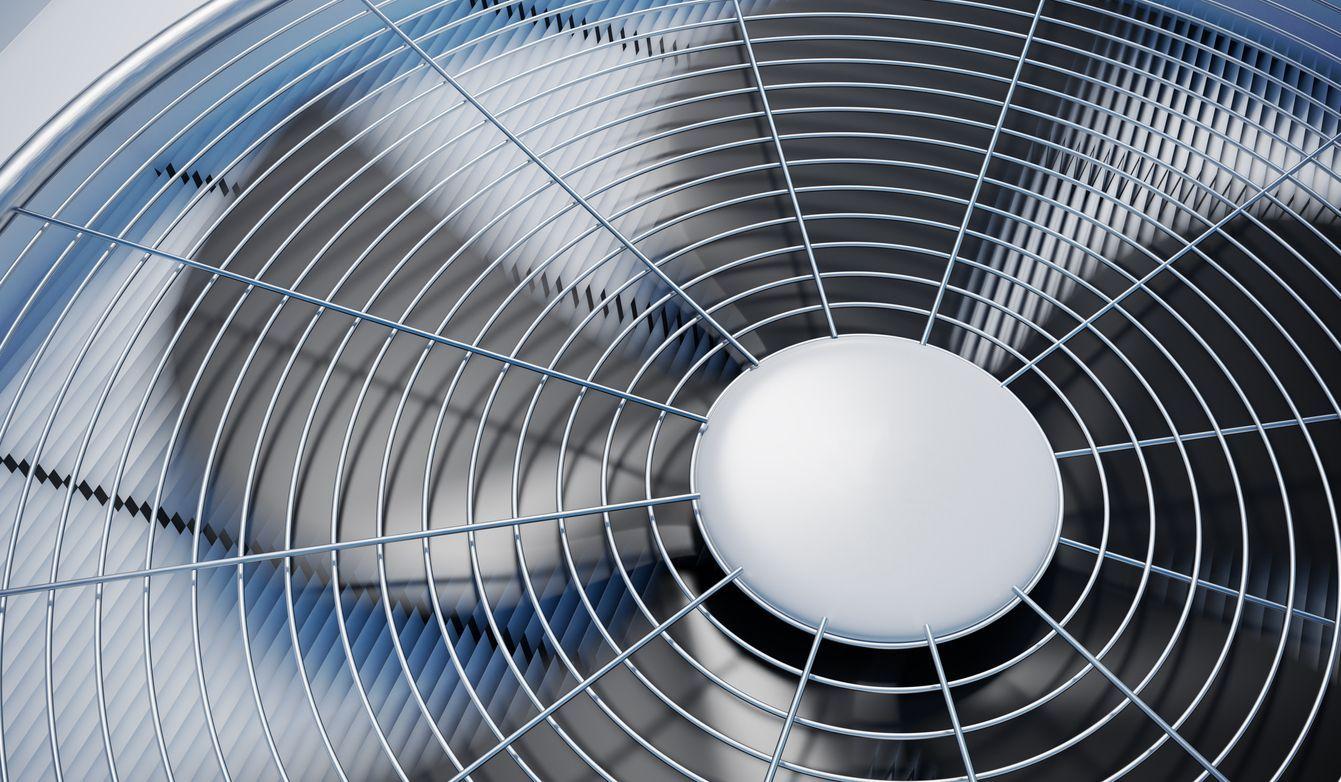What Causes an AC Compressor Grinding Noise?

Is the noise from your air conditioning system disrupting your daily activities or nighttime sleep routine? If you're frustrated by loud sounds, such as grinding, your AC system might be losing efficiency and heading toward a potential breakdown. Discover the typical causes behind an AC compressor grinding noise and how to resolve the issue.
Causes of AC Grinding Noises
Common causes of an AC grinding noise include:
A Damaged Condenser Fan Blade
A likely culprit of an AC compressor grinding noise is a damaged or broken fan blade. The AC condenser fan blade facilitates the dissipation of heat from the refrigerant, enhancing efficiency of the air conditioning system. When the broken fan blade turns, it can bang up or grind against metal components within the AC compressor, causing the AC grinding noise.
If left unchecked, a damaged blade can cause serious damage to your compressor, leading to complete system replacement. Take a peek inside the grill of your AC condenser to inspect for broken blades, and then contact a reputable HVAC technician for repair or replacement service.
Bad Pistons
Pistons are crucial components of a car's engine, but did you know AC compressors also have pistons? An air conditioner's pistons regulate the flow of refrigerant by creating pressure differentials, aiding in the cooling process with the air conditioning system. Once the pistons compress the refrigerant gas, it's sent to the condenser coils to release as heat.
AC pistons wear out over time due to continuous cycling of high-pressure refrigerant through the system, leading to friction and gradual deterioration of the piston's components. Typically, once the pistons wear out, it's a sign the condenser is also wearing out, and it's advised to replace the entire unit. The pistons play a crucial role in the performance and efficiency of your air conditioner, and it's not cost-effective to replace them alone.
Worn-out Motor Bearings
Motor bearings support the rotating shaft of the compressor's motor, allowing it to spin smoothly. Over time, bearings can wear out due to continuous use, which can lead to increased friction, noise, and reduced efficiency of the compressor.
“These bearings are usually serviced annually, so prolonged use affects them,” said CJ Lloyd, owner of Utah's Best Home Pros. “There is no need for system replacement in this case. Just lubricating the bearings will help eliminate the noise.”
Contaminants in the System
Debris such as twigs or stones, as well as other foreign objects, can enter the AC condenser system and interfere with the proper operation of the compressor, causing grinding noises.
Damaged Belts
An air conditioning system's belts, including the serpentine belt or the AC compressor belt, transmit power from the engine to various components, including the compressor. If these belts are worn, frayed, misaligned, or damaged in any way, they can slip or produce an air conditioner grinding noise as they interact with the pulleys and components. Damaged belts can cause improper functioning of the air conditioner's compressor, affecting its performance and causing increased damage. Contact a reputable HVAC technician to prevent further damage or other significant AC problems.
Lack of Lubrication
The AC compressor's moving parts, including the motor bearings, need adequate amounts of lubrication to function properly. If they've received insufficient lubrication or it's degraded over time, the compressor's moving parts can rub up against each other and create an AC grinding noise.
The Cost to Replace an AC Compressor
Unfortunately, an AC compressor grinding noise can signal the end of your unit. According to ThePricer.org, replacing an AC compressor costs between $1,000 and $2,500 based on several factors including the make and model, its efficiency, the compressor type, its size, and the complexity of the installation.
The Cost to Repair an Air Conditioner Compressor
The average cost of repairing an AC compressor isn't cheap. AC compressor repair costs can range from $500 to $1,500 or more depending on factors such as the type of compressor, the air conditioning system's make and model, your location, and the extent of the damage.
If the air conditioner is newer or still covered under warranty, a repair may suffice. Contact a qualified HVAC technician to provide an estimate for AC compressor repair and replacement to make the best decision for your specific needs and budget.
“While system replacement could be a consideration in cases of extensive wear, severe damage, or energy inefficiency, more often than not, targeted repairs can address specific component issues, such as fan motors or compressors,” said Jeff Gervais, owner of Gervais Mechanical in Auburn, Massachusetts. “Regular maintenance and timely repairs can help mitigate the risk of minor issues escalating and provide a cost-effective approach to prolonging the lifespan of the AC system.”
How Long Does an AC Compressor Last?
With proper maintenance and timely repairs, an AC compressor typically lasts about 10 to 15 years. However, factors such as maintenance frequency, climate conditions, and overall system quality can influence the lifespan of an air conditioner compressor.
FAQs on AC Compressor Grinding Noise
How do you fix a grinding AC compressor?
If your air conditioner compressor is grinding, turn the system off and contact a reputable HVAC company. They will help you determine whether to replace or repair the system. The longer the AC compressor runs while grinding, the more damage it causes.
Why does my AC sound like metal grinding?
An AC can sound like metal grinding due to a broken or loose part inside the air conditioner compressor. Worn-out pistons also can make grinding sounds, which means the compressor is wearing out and likely needs to be replaced.
Why is my window AC unit making a grinding noise?
A window AC unit can make a grinding noise due to issues such as worn-out fan blades, damaged motor components, or debris obstructing the moving parts within the unit.